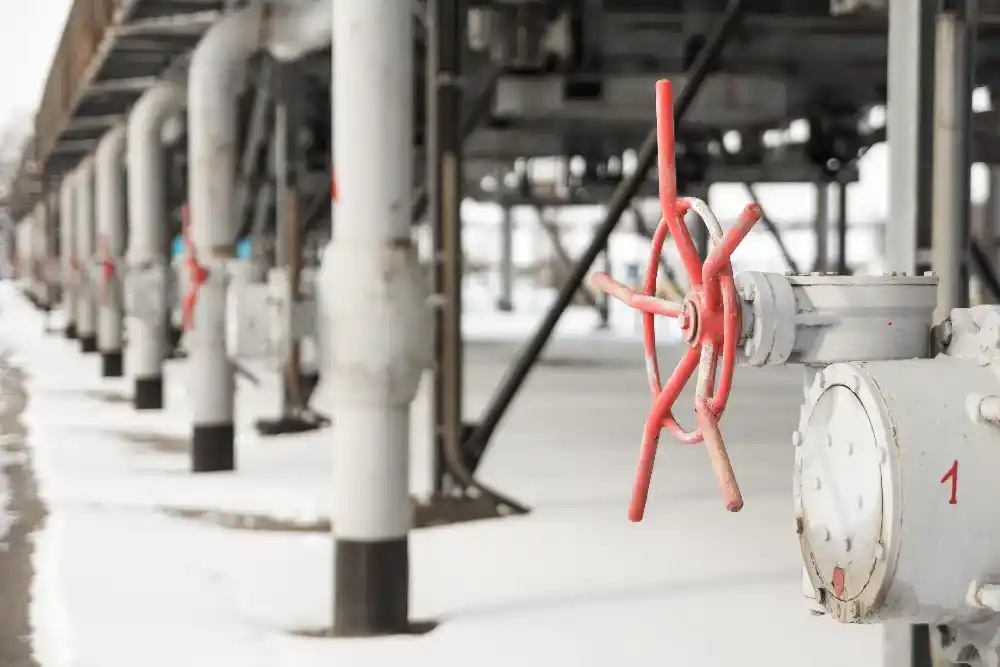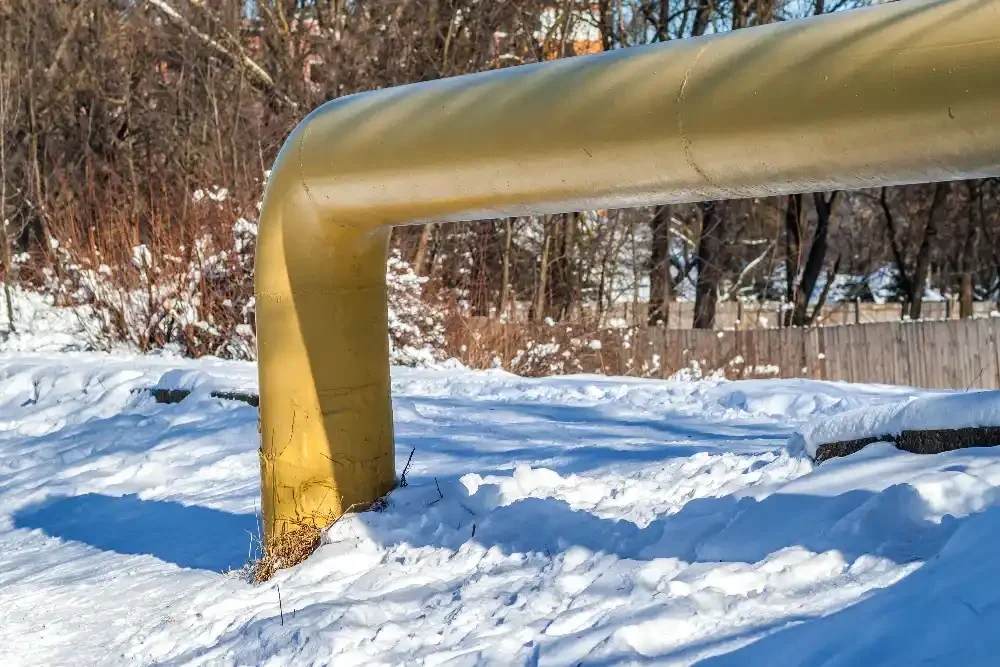
Winter is beautiful—until it starts wreaking havoc on your home’s plumbing and gas lines. When temperatures drop below freezing, many homeowners worry: can gas pipes freeze? Well, it is a genuine issue, particularly in locations where winter is long and harsh. Gas lines, unlike water pipelines, are frequently thought to be cold-resistant, but is this true? Let’s look into the facts and what you may do to avoid any problems.
Can Cold Weather Affect Gas Lines?
How Cold Temperatures Impact Gas Systems
Cold temperatures may stiffen materials, reducing flow rates, and gas systems are no exception. While gases react differently from liquids, excessive cold can nonetheless have an impact on the efficiency with which your gas appliances work.
Natural Gas in Cold Weather
Natural gas stays gaseous under normal circumstances. However, its delivery system (pipes and regulators) can deteriorate in frigid temperatures. Moisture within the pipes might freeze, causing clogs and reducing gas flow.
Propane Gas in Cold Weather
Propane acts differently. In extremely cold temperatures, it can condense and reduce its vaporization rate. This implies that appliances may not receive the gas required to work correctly. So, can a propane gas line freeze? It definitely can if the circumstances are perfect.
Can Gas Pipes Freeze?
Here’s the pressing question: Can gas pipes freeze? Yes, they can. While gas is unlikely to freeze, moisture within the pipe might harden, causing severe obstructions. This is especially problematic with older systems or lines that are exposed to the weather.
What Happens If a Gas Line Freezes?
When a gas line freezes, it can cause a complete shutdown of fuel delivery. This means no heating, hot water, or cooking until the obstruction is cleared. In severe circumstances, it can result in pressure buildup and pipe damage.
Common Signs of a Frozen Gas Line
Dangers of Freezing Gas Lines
A frozen gas line is not just inconvenient; it may be dangerous. Appliances that rely on steady gas flow may fail, resulting in incomplete combustion or the back-drafting of hazardous pollutants.
Can a Frozen Gas Line Cause a Gas Leak?
Yes. As ice develops within a pipe, it expands. This might lead to cracks in fittings and joints. Once thawed, gas may seep through these susceptible places, causing major threats such as fires or explosions.
Can Natural Gas Lines Freeze?
Why Do Natural Gas Lines Freeze During the Winter Months?
Natural gas pipes can freeze when moisture gathers in low locations and solidifies in freezing temperatures.
At What Temperature Do Natural Gas Lines Freeze?
Technically, natural gas does not freeze readily. However, depending on the pressure, moisture inside the pipe might freeze at around 32°F (0°C).
Does Natural Gas Itself Freeze?
No, not in ordinary atmospheric circumstances. It takes extremely low temperatures, below -296°F, to freeze. However, this does not imply that the system is safe. If you are wondering if natural gas lines can freeze, it is important to note that the issue is with the possibility of natural gas pipes freezing due to ice obstruction, not the gas freezing itself.
Can Propane Gas Lines Freeze?
At What Temperature Do Propane Gas Lines Freeze?
Propane boils at -44°F. If temperatures fall close to this level, the pressure in the tank decreases dramatically, impacting distribution through the line.

Does Propane Gas Itself Freeze?
That is unlikely unless you live in Antarctica. However, pressure loss can imitate a frozen system. So, can a propane gas line freeze? Not precisely, although the low vapor pressure can make it appear frozen.
How to Prevent Gas Pipes from Freezing
Do You Need to Cover Gas Pipes in Winter?
Absolutely. Do you need to cover gas pipes in the winter? Yes, particularly those who are exposed to the elements outside. Wrapping them with foam or insulation sleeves helps to keep a consistent temperature and avoid condensation.
Is It Safe to Insulate a Gas Pipe?
Yes, as long as you use materials designed for gas systems installation. Avoid anything that is combustible or has the potential to retain moisture.
Tips to Prevent Freezing
- Keep snow and ice from accumulating on outdoor gas meters.
- Insulate any exposed lines.
- Ensure that subterranean lines are properly graded to minimize moisture pooling.
- Perform routine checks before winter arrives.
How to Unfreeze Gas Lines
Apply Gentle Heat with a Warm Towel
Wrap the affected pipe part with a cloth dampened with warm (not hot) water. This will slowly warm the pipe without destroying it.
Use a Hair Dryer on Low Heat
Blow warm air onto the frozen part. Never use an open flame, since it might ignite leaking gas.
Heat the Surrounding Area
Sometimes, raising the temperature surrounding interior wires is enough to defrost the ice within.
Insulate the Line Temporarily
Use blankets or foam insulation to keep whatever heat you apply. This speeds up the thawing process.
When to Call a Professional
If you smell gas, hear hissing, or notice widespread freezing, contact a professional immediately. Don’t take the chance
Worried About Frozen Gas Lines? We Can Help!
The winter chill does not have to jeopardize your home’s comfort or security. The first step is to understand the hazards and identify the warning indicators. So, can gas pipes freeze? They can—and do. The risks are significant, ranging from frozen moisture obstructions to pressure decreases in propane systems. But with a little planning, such as replying “do you need to cover gas pipes in winter?” with a resounding yes, you can keep your house safe and toasty.
Still unsure what to search for? Need expert assistance with a suspected frozen line? That’s where Wally Blanton Plumbing Inc. steps in. We’ve solved several cold-weather plumbing and gas issues with care, quickness, and skill. Don’t let the cold catch you off guard—contact us immediately and we’ll keep your gas lines running all winter!
